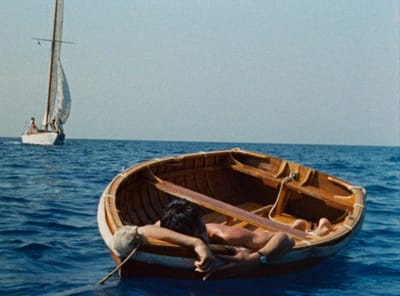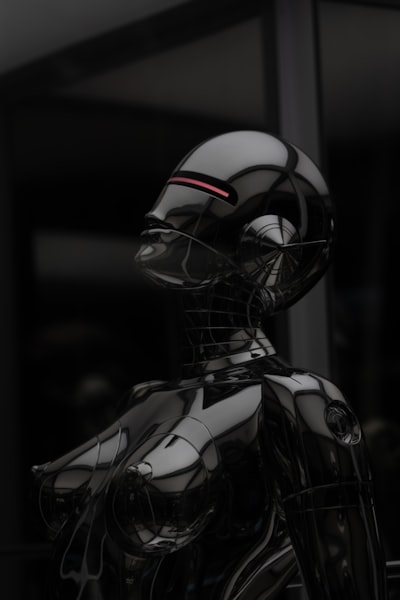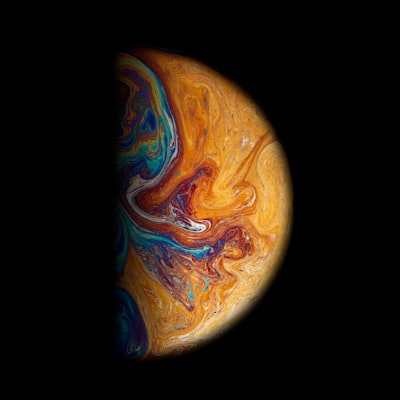Years before the Handmaid's Tale, Harry Potter, or the Game of Thrones were adorned by hundreds of millions on screen - and even before they were international best sellers - these books were nominees and prize winners to these little-known literary awards. A search through these lists may reveal the world's next great film or television series.
Why Speculative Fiction Has its Own Literary Awards
The entire category of speculative fiction, including its most popular genre, science fiction, has always been treated as a second-class literature. This viewpoint originated from a response to the popularity of pulp paper, which cheapened the cost of printing in the early 20th century and allowed for hobbyist writers, who favored science fiction, to pen their stories into print. As a result, low-quality - mostly science - fiction flooded the market (birthing the denigrating term "pulp-fiction"). The genre has been trying to shake its reputation as low-brow and low-quality ever since.
In the fifties there was a concerted effort among writer's of a movement called New Wave science fiction to establish the genre as a legitimate art form. This divided the existing community of sci-fi writer's between self-proclaimed professionals and amateurs - a bifurcation no different than how the broader literary community treated SF writers. But, in the end, the New Wave authors forfeited, citing their efforts as a "manufactured controversy." Then, after New Wave's preeminent publication, New Worlds magazine, shuttered in 1970 the movement officially died. And with it, the effort to establish science-fiction as serious literature vanished.
The segregation continues today. In its 74 year history of recognizing "distinguished fiction published in book form during the year by an American author," the Pulitzer Prize did not recognize a book of speculative fiction until 2007, when it awarded Cormac McCarthy's dystopian novel The Road. Then, ten years later, it awarded Colson Whitehead's alternative history The Underground Railroad. In either instance the genre of their books were not a point of discussion.
Yet, each year, published works of speculative fiction (in the genres of steampunk, cyberpunk, solarpunk, dystopia, supernatural horror, afrofuturism, etc.) deserve exceptional recognition for their mastery of language and storytelling. It's for this reason that science-fiction, and its related genres, have created their own literary award systems.
Awards For The Best Science Fiction et al.
The best of speculative fiction is recognized by the following four award panels. There are others as well. Namely, the Mythopoeic Awards, the World Fantasy Awards, British Fantasy Awards, Aurora Awards, and The Kitchies among others. But for the sake of this article, we'll look at how four major awards have recognized the best speculative fiction, and created a pipeline for the best television and film too.
The Hugo Awards: Awarded annually since 1953 at the World Science Fiction Convention, The Hugo Awards are heralded as the premier award in science fiction. The nominees and winners are chosen by members of the convention across seventeen categories - including "best fan writer." The Hugo Awards are named after Hugo Gernsback, the founder of the science fiction magazine Amazing Stories.
Nebula Awards: The Nebula Awards are awarded by the Science Fiction and Fantasy Writers of America (SFWA), a nonprofit association of professional science fiction and fantasy writers. In terms of prestige (for what that's worth), Nebula Awards are considered on par with The Hugo Awards. The Nebula Awards began in 1966, at the end of the New Wave literary movement. A timing which encouraged the awards to distinguish itself from The Hugos by honoring more literary publications. The first Nebula for best novel, for example, was given to the now famous Frank Herbert's Dune.
Arthur C. Clarke Awards: The Arthur C. Clarke Award is a British award given for the best science fiction novel first published in the United Kingdom during the previous year. Its namesake is Arthur C. Clarke, author of 2001: A Space Odyssey - more popularly known as Stanley Kubrick's cinematic masterpiece. It is considered the UK's equivalent to the Hugo Awards.
Locus Awards: Considered the pipeline to the Hugo Awards, the Locus Awards are an open voting award system that recognizes the best of speculative fiction based off results of an annual readers' poll.
Philip K. Dick Awards: A science fiction award given annually during Norwescon to the best original paperback published each year in the US. It's named after the prolific sci-fi author of the same name, who is best known for his work that now lives on screen as Blade Runner.
Queue The Age of Adaptations
Sci-Fi's grandest award is not any literary prize, but its ever-expanding IP into merchandise, film, television, and theme parks. The mass deployment of resources spent to replicate these unreal worlds into our everyday lives has transformed the genre from a derisive genre of literature solely uplifted by fandom into a multi-billion dollar prize. As of this writing, six of the top ten grossing films of all time were adapted from speculative fiction books. That ratio continues as the list expands. Of the top 100 grossing films of all time 48 are speculative fiction adaptations.
These numbers are disproportionately represented by films made from the explosive Marvel Universe. Nevertheless, significant series and films are following a similar trend. Who could have predicted that nearly 60 years after its publication Dune would thrust itself onto the screens of millions of Americans? Or that Apple would take a risk on Asimov's Foundation series? The potential financial upside in characterizing these stories on screen has sent - or should have sent - developmental editors deep into the archives of these prize lists in search of the next great series.
And here is where speculative fiction, especially science fiction, gets the last laugh on its accusations that it is not real literature. Whatever speculative fiction lacks in literariness is eclipsed by the value of its entertainment, consumability, and cultural impact. So, sure, speculative fiction often lacks literary prowess, but perhaps it's time that we come to terms with the fact that America is not a literary society.
A Short Summary of Sci-Fi Books Adapted into TV & Film
Before we take a look at potential next great hits, let's quickly review the breadth of films and series, especially over the last twenty years, that originated as books honored by the Hugo, Nebula, Locus, Arthur C. Clarke, and Philip K. Dick awards long before they became household names.
Starship Troopers by Robert A. Heinlein: Recognized by Hugo in 1960 | Adapted into a Touchstone Pictures film in 1997
Man in the High Castle by Philip K. Dick: Recognized by Hugo in 1963 | Adapted into an Amazon Prime series in 2015
Dune by Frank Herbert: Recognized by Nebula & Hugo in 1966 | Adapted into a Legendary Pictures film in 2021
Do Androids Dream of Electric Sheep? by Philip K. Dick: Recognized by Nebula in 1969 | Adapted into the film Blade Runner in 1982
Slaughterhouse-Five by Kurt Vonnegut: Recognized by Nebula in 1970 | Adapted into a Universal Pictures film in 1972
Foundation's Edge by Isaac Asimov: Recognized by Locus in 1983 | Adapted into an Apple+ series in 2021
Ender's Game by Orson Scott Card: Recognized by Hugo in 1986 | Adapted into a Summit Entertainment film in 2013
The Handmaid's Tale by Margaret Atwood: Recognized by Arthur C. Clarke in 1987 | Adapted into a Hulu series in 2017
A Game of Thrones by George R.R. Martin: Recognized by Locus in 1997 | Adapted into an HBO series in 2011
Harry Potter and the Prisoner of Azkaban by J.K. Rowling: Recognized by Hugo in 2000 | Adapted into a Warner Bros. film series in 2001
American Gods by Neil Gaiman: Recognized by Hugo in 2002 | Adapted into a Starz series in 2017
Altered Carbon by Richard K. Morgan: Recognized by Philip K. Dick Award in 2003 | Adapted into a Netflix series in 2018
Cloud Atlas by David Mitchell: Recognized by Arthur C. Clarke in 2005 | Adapted into a Wachowskis film in 2012
The Time Traveler's Wife by Audrey Niffenegger: Recognized by Arthur C. Clarke in 2005 | Adapted into a New Line Cinema film in 2009
Never Let Me Go by Kazuo Ishiguro: Recognized by Arthur C. Clarke in 2006 | Adapted into a DNA films movie in 2010
Abaddon's Gate by James S.A. Corey: Recognized by Locus in 2014 | Adapted into the Amazon Prime series "The Expanse" in 2015
Station Eleven by Emily St. John Mandel: Recognized by Arthur C. Clarke in 2015 | Adapted into an HBO miniseries in 2021
The Three-Body Problem by Cixin Liu: Recognized by Hugo in 2015 | Adapted into a Youzu Pictures film in 2017
The Underground Railroad by Colson Whitehead: Recognized by Arthur C. Clarke in 2016 | Adapted into an Amazon Prime miniseries in 2021
The Broken Earth Trilogy by N.K. Jemisin: Recognized by Hugo in 2016 | Adapted into a forthcoming series produced by Michael B. Jordan announced in 2022
The Martian by Andy Weir: Recognized by Hugo in 2016 | Adapted into a 20th Century Fox film in 2015
Mexican Gothic by Silvia Moreno-Garcia: Recognized by Nebula in 2021 | Adapted into a forthcoming Hulu series announced in 2022
Seven Books With A Potential to Become Your Next Favorite Stream
The above trend is staggering, and nowhere near complete. The following seven books - or series of books - have the potential to become the next great blockbuster film or streaming sensation. Give one a read - so you can say something pretentious like, "series was mid - the book was way better."
NOTE: the below "buy from" links are affiliate links which allow me to earn a commission from your purchases.

Only Begotten Daughter by James Morrow
Recognized by Nebula as the Best Novel of 1990
Jesus returns as Julie Katz, the daughter of God, after being spontaneously conceived from a sperm bank. What follows is a story about the struggles of her messianic powers (which she uses to breathe underwater, revive dead animals, and talk with a sponge named Amanda), navigating satanic mind games, and fleeing from Christian fundamentalists who want her killed for heresy. It's a story layered with commentary on why humans suffer, the meaning of godliness, and the restoration of humanity in the face - or absence - of miracles.

Babel-17 by Samuel R. Delany
Recognized by Hugo as the Best Novel of 1967
During an interstellar war a new language called Babel-17 is developed as a weapon. When enemy combatants learn the language they unwillingly turn into a traitor, a fact discovered by a starship captain and telepath, Rydra Wong. She discovers a member of her crew has been compromised, and in her search to discover who also becomes a subject of the languages deception - until she too becomes a traitor. Her crew must fight to restore their Captain's mind without also becoming victims to Babel-17. This is as much an interstellar war story as it is psychological thriller; a story about the power of language, and the ways it shapes our world and the people within it.

Zoo City by Lauren Beukesy
Winner of the Arthur C. Clarke Award in 2011
NOTE: A Zoo City adaptation was announced in 2014, but as of this writing no film or series has been released.
The setting is an alternative past version of Johannesburg, where criminals are magically attached to an animal familiar. The novel's protagonist, Zinzi December, a recovering drug addict is "animalled" to a sloth and lives in the suburb Hillbrow - also known as "Zoo City," because of all its animalled residents. Zinzi owes her dealer a lot of money, and the story begins as she starts selling her psychic power given by her animal. But, danger is afoot, as animals are mortal and if killed result in the owner mysteriously vanishing from earth. Zoo City is a fascinating story on guilt, culpability, and consequences that should make its way to screen A-S-A-P.

The 'Club of Rome Quartet' series by John Brunner
The series' first book, Stand on Zanzibar, won the Hugo Award for Best Novel in 1969
This four part series focuses on large, dystopic themes. The first book, Stand on Zanzibar captures the horror of an overpopulated world. The second, The Jagged Orbit, focuses on racial tension and gun violence. The third, The Sheep Look Up, imagines a level of environmental deterioration where in many places the water is undrinkable. And, the fourth novel, The Shockwave Rider, places readers in a world where computers dictate even the future - a dystopia now known as reality. An adaptation of Brunner's, colloquially named 'Club of Rome' Quartet would certainly rival the best of Black Mirror's episodes.

The Book of the New Sun series by Gene Wolf
This series' second volume, The Claw of the Conciliator, won the Nebula Award for best novel in 1981
The main character, Severian, is a professional torturer who is forced to wander the earth in this four volume journey. The setting is a distant future when the Sun has dimmed and Earth has cooled, and Severian's home nation, lives in a nation Commonwealth, is at war with its northern bordering neighbor Ascia, which is controlled by enormous beings who want to enslave humanity. It's in this setting Severian journeys as a man without a home, trapped in a horrible trade, who wishes for nothing but the world and himself to better. But to become better he'll have to make dangerous and difficult decisions. This series is a thrill of a story that touches on topics such as self-actualization, sanctification, sacrifice, and censorship.

Flow My Tears, the Policeman Said by Philip K. Dick
Nominated for a Nebula Award in 1974, and Hugo in 1975
The setting of this novel sets the stage for a remarkable tale: after the United States' second Civil War all democratic institutions collapse. In this vaccuum of power the National Guard and U.S. Police institute a dictatorship. In this world the age of consent has been lowered to 12 and blacks are nearly non-existent. If there's any glimmer of progress it's in that every person has their own private aircraft. In this story our main character uncovers a deep set of secrets held by a class of genetically engineered humans. If you're into multi-universe bio-thrillers that ultimately warn those in power that they will be held accountable, Flow My Tears is the book for you.

A Memory Called Empire by Arkady Martine
Awarded the Hugo for best Novel in 2021
From one of the most exciting new writers in the genre, Arkady Martine introduces the world to the Teixcalaanli Empire, a world unto itself that mimics some of the darker realities on earth. It's a tale about cultural memory and how remembered-history shapes politics and culture - and how it takes a barbarian to fight back against the cruelest of indoctrinations. Her second book A Desolation Called Peace hit the shelves, giving this story promise that it will become one of the epic series in speculative fiction.





